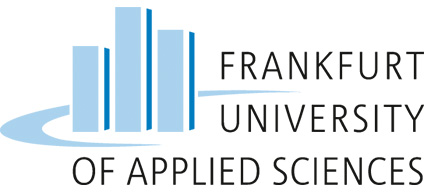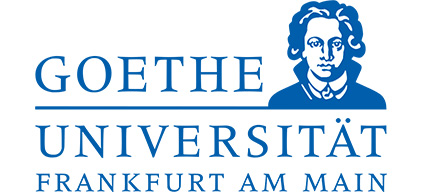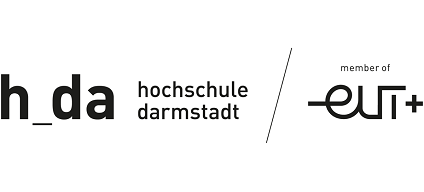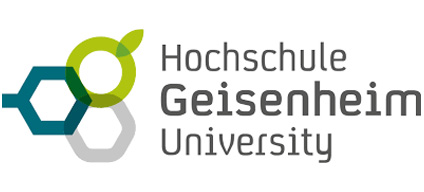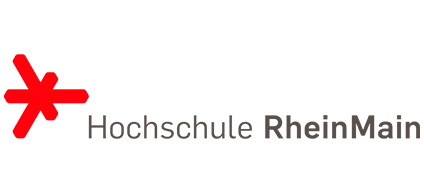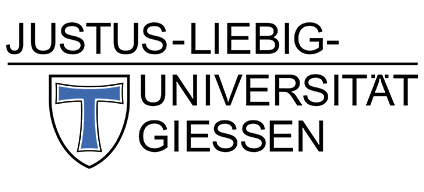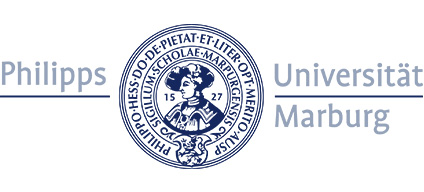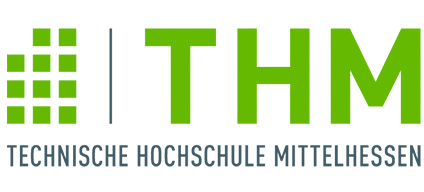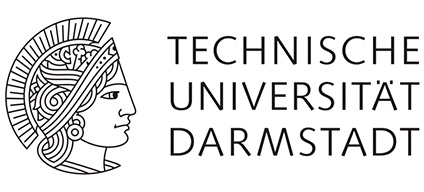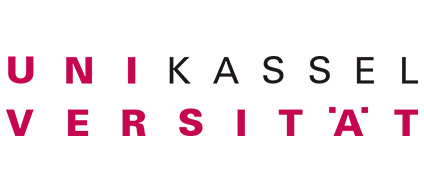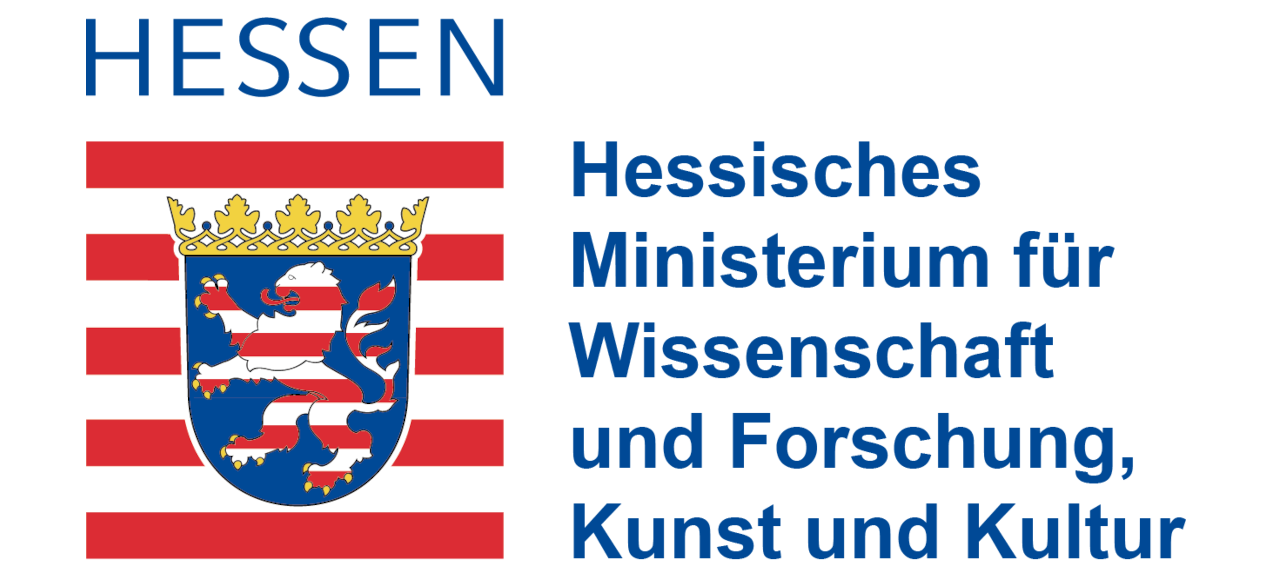Main Content
HeFDI Data Week 03.-07. June 2024

Goals
Registration
Publications (ongoing)
HeFDI Data Week Programme Overview
Detailed Talk Descriptions
Goals
Leading up to the nationwide “Digitaltag” on June 07th, we invite you to join us for the HeFDI Data Week 2024. This online event is aimed at researchers, educators, students, and anyone interested in learning more about FAIR Data and Code and challenges coming along with that. Over the course of the week, we will be covering various themes related to research data.
Participation in the HeFDI Data Week is free of charge.
The registration is closed!
Feel free to take a look at the HeFDI Data Week 2024 presentations (more are added continuously) or our other event publications in the HeFDI Zenodo community.
| Monday, 03.06.24 | Track 1.1: Introduction to Research Data Management (RDM) | Track 1.2: Research Software and Data with Jupyter and GitLab |
| Tuesday, 04.06.24 | Track 2.1: Legal aspects | Track 2.2: RDM in the Humanities |
| Wednesday, 05.06.24 | Track 3.1: Digitisation of university collections | Track 3.2: RDM in the Natural- & Life Sciences |
| Thursday, 06.06.24 | Track 4.1: Data Stewardship | Track 4.2: Electronic Lab Notebooks |
| Friday, 07.06.24 | Track 5.1: cancelled | Track 5.2: RDM in the Health- & Social Sciences |
Each track consists of multiple talks. You can find a brief overview of the topics and presenters in the following tables. Detailed information on all the talks can be found at the end of the page.
Monday, 03 June 2024
| Track 1.1: Introduction to Research Data Management (RDM) | Track 1.2: Research Software and Data with Jupyter and GitLab | |
| 09.00 - 10.15 | Introduction to RDM (EN) Presenter: Dr. Beate La Sala (Goethe-University Frankfurt) |
Jupyter: Introduction and Installation (EN) Presenter: Dr. Christian Berger (Philipps-University Marburg) |
| 10.15 - 10.30 | Break | Break |
| 10.30 - 11.45 | Data management plans: step by step (DE) Presenter: Dr. Sabrina Jordan (University of Kassel) |
Jupyter and Python: Data Evaluation and Visualization (Hands-on Session) (EN) Presenter: Dr. Christian Berger (Philipps-University Marburg) |
| 11.45 - 12.30 | Lunch Break | Lunch Break |
| 12.30 - 13.45 | Data publication exemplified with data_UMR (live demo) (EN) Presenter: Dr. Lydia Riedl (Philipps-University Marburg) |
Git and GitLab (EN) Presenter: Tim Bender (Darmstadt University of Applied Sciences) |
| 13.45 - 14.00 | Break | Break |
| 14.00 - 15.15 | Data management for research proposals - Requirements of BMBF and other federal ministries (DE) Presenters: Dr. Judith Dähne (RheinMain University of Applied Sciences), Dr. Björn Trebels (Technische Hochschule Mittelhessen - University of Applied Sciences) |
Host your own websites with GitLab Pages (Hands-on Session) (EN) Presenter: Tim Budras (Philipps-University Marburg) |
Back to top
Jump to detailed talk descriptions
Tuesday, 04 June 2024
| Track 2.1: Legal aspects | Track 2.2: RDM in the Humanities | |
| 09.00 - 10.15 | - | NFDI4Memory - Data Literacy in the Historically Oriented Humanities (DE) Presenter: Dr. Stefan Büdenbender (Darmstadt University of Applied Sciences) |
| 10.15 - 10.30 | Break | Break |
| 10.30 - 11.45 | Practical guidance on how to handle personal research data (DE) Presenter: Dr. Thomas Richter (Fulda University of Applied Sciences) |
LEAF-Writer: An online editor for (TEI-) XML-based text documents (DE) Presenters: Dr. Stefan Büdenbender, Jonathan Baum, Jacob Benz (Darmstadt University of Applied Sciences) |
| 11.45 - 12.30 | Lunch Break | Lunch Break |
| 12.30 - 13.45 | - | Important disclaimer: The talk “Semantic MediaWiki as a Research Tool in the Humanities” by Michael Freiberg has been postponed to the following slot at 14.00h today. Please join us at the updated time slot. We thank you for your patience! |
| 14.00 - 15.15 |
- | Semantic MediaWiki as a Research Tool in the Humanities (DE) Presenter: Michael Freiberg (Justus-Liebig-University Giessen) |
Back to top
Jump to detailed talk descriptions
Day 3: Wednesday, 05.06.24
| Track 3.1: Digitization of university collections | Track 3.2: RDM in the Natural- & Life Sciences | |
| 09.00 - 10.15 | Unifying Hesse's Historical Heritage: Creating a Shared Data Space (DE) Presenters: Thomas Hörnschemeyer (Museum Wiesbaden), Rebecca Krämer (Hessian Ministry of Higher Education, Research, Science and the Arts) |
Publishing Research Data with PANGAEA (EN) Presenter: Matthias Pauli (PANGAEA - Data Publisher for Earth & Environmental Science) |
| 10.15 - 10.30 | Break | Break |
| 10.30 - 11.45 | Challenges in digitization of cultural and natural history collections (DE) Presenter: Dr. Etta Grotrian (Übersee-Museum Bremen) |
PUBLISSO - ZB MED's discipline-specific repository for life sciences - promoting open access publications and FAIR data (DE) Presenter: Roman Riedel (ZB MED) |
| 11.45 - 12.30 | Lunch Break | Lunch Break |
| 12.30 - 13.45 | Decolonial collection cataloguing? - Broadening perspectives in provenance data fields and the role of Linked Open Data in the decolonial cataloguing of collection items from colonial contexts (DE) Presenters: Dr. Claudia Andratschke (SpeNetwork for Provenance Research in Lower Saxony ), Romy Susanne Köhler (Rheinische-Friedrich-Wilhelms-Universität Bonn) |
Focus Areas - A geographical tool to support research data management (EN) Presenter: Kristin Meier (Leibniz Centre for Agricultural Landscape Research (ZALF)) |
| 13.45 - 14.00 | Break | Break |
| 14.00 - 15.15 | The portal on the history of the UMR under National Socialism - space for a digital search for traces (DE) Presenter: Dr. Esther Krähwinkel (Philipps-University Marburg) |
NFDI4Microbiota - Infastructure, Microbiology, Databases and Interaction (EN) Presenters: Prof. Dr. Thomas Clavel (RWTH University Hospital), Shahram Saghaei (Friedrich Schiller University Jena) |
Back to top
Jump to detailed talk descriptions
Day 4: Thursday, 06.06.24
| Track 4.1: Data Stewardship | Track 4.2: Electronic Lab Notebooks | |
| 09.00 - 10.15 | What are data stewards? An introduction based on the GesundFDM Data Steward concept (DE) Presenter: Katharina Koch (Hochschule für Gesundheit Bochum) |
eLabFTW Q&A rewind - retrospective of our highlights (EN) Presenters: Nicole Parks (RWTH Aachen University), Dr. Björn Trebels (Technische Hochschule Mittelhessen - University of Applied Sciences), Hüseyin Uzun (Goethe University Frankfurt) |
| 10.15 - 10.30 | Break | Break |
| 10.30 - 11.45 | From Individual to Institute: Commitment for RDM (EN) Presenter: Dr. Jeanne Wilbrandt (Leibniz Institute on Aging – Fritz Lipmann Institute (FLI)) |
Getting started and working with eLabFTW (DE) Presenter: Prof. Dr. Andreas Chiocchetti (Goethe University Frankfurt) |
| 11.45 - 12.30 | Lunch Break | Lunch Break |
| 12.30 - 13.45 | Further development and needs of data stewardship (DE) Presenter: Daniela Hausen (RWTH Aachen University) |
Boost your productivity: Exploring eLabFTW's API live (EN) Presenters: Hüseyin Uzun (Goethe University Frankfurt), Alexander Haller (Heidelberg University) |
| 13.45 - 14.00 | Break | Break |
| 14.00 - 15.15 | Certificate Courses, Workshops, Trainings... What Do Data Stewards Need? Insights from the Data Steward Certificate Program at the University of Vienna (EN) Presenter: Tereza Kalová (Vienna University Library, University of Vienna) |
FAIR Research Data Management and integrated data analysis with Kadi4Mat (EN) Presenters: Hafiz Noman, Deepalaxmi Rajagopal, Manideep Jayavarapu (Karlsruhe Institute of Technology) |
Back to top
Jump to detailed talk descriptions
Day 5: Friday, 07.06.2024
| Track 5.2: RDM in the Health- & Social Sciences | |
| 09.00 - 10.15 | Cooperative processing of qualitative research data (EN) Presenters: Dr. Sebastian Schlerka, Theresa Manderscheid (Research Data Centre Qualiservice, University of Bremen) |
| 10.15 - 10.30 | Break |
| 10.30 - 11.45 | Encryption in research data management (DE) Presenter: Jens Möhrstedt (RheinMain University of Applied Sciences) |
| 11.45 - 12.30 | Lunch Break |
| 12.30 - 13.45 | eTIC: electronic Tool for Informed Consent documents (DE) Presenters: Dr. Katharina Huster, Prof. Dr. Georg Schmidt (Technical University of Munich) |
| 13.45 - 14.00 | Break |
| 14.00 - 15.15 | Data Anonymisation: Solutions in NFDI4Health (EN) Presenter: Prof. Dr. Fabian Prasser (Berlin Institute of Health at Charité (BIH)) |
Back to top
Jump to detailed talk descriptions
Detailed Talk Descriptions
Monday, 03.06.24, Track 1.1
09.00 - 10.15 Introduction to RDM (EN)
In recent years, research data management has increasingly gained importance in academic research. Concurrently, research funders have progressively made it an obligatory component of grant applications. The workshop "Introduction to Research Data Management" provides a basic introduction to effective research data management. It is aimed at researchers from all disciplines who wish to enhance their proficiency in handling research data. The objective is to empower participants to gather, organize, store, analyze, and share their research data more efficiently in the future.
Presenter: Dr. Beate Ulrike La Sala (Goethe University Frankfurt)
Chair: Robert Werth (Frankfurt University of Applied Sciences)
Language: English10.30 - 11.45 Data management plans: Step by Step (DE)
This presentation provides participants with a guide to creating data management plans. Important steps from planning to implementation are explained to effectively manage data. Practical tips and advice help participants efficiently manage their data and meet the requirements of their research projects.
Presenter: Dr. Sabrina Jordan (University of Kassel)
Chair: Arnela Balic (Frankfurt University of Applied Sciences)
Language: German12.30 - 13.45 Data publication exemplified with data_UMR (live demo) (EN)
During this live demo, we will explore the practical implementation of effective data management principles into a FAIR data publication. We will focus specifically on how to submit a dataset to the curated repository "data_UMR," emphasizing best practices for managing digital research data.
Presenter: Dr. Lydia Riedl (Philipps-University Marburg)
Chair: Robert Werth (Frankfurt University of Applied Sciences)
Language: English14.00 - 15.15 Data management for research proposals - requirements of BMBF and other federal ministries (DE)
At many universities, third-party funding is mainly provided by the Federal Ministry of Education and Research (BMBF) or other federal ministries. This presentation will look at the requirements for data management in these calls for proposals, what you should bear in mind and what support is available.
Presenters: Dr. Judith Dähne (RheinMain University of Applied Sciences), Dr. Björn Trebels (Technische Hochschule Mittelhessen - University of Applied Sciences)
Chair: Arnela Balic (Frankfurt University of Applied Sciences)
Language: German
Monday, 03.06.24, Track 1.2
09.00 - 10.15 Jupyter: Introduction and Installation (EN)
Interactive computing, data processing and programming for beginners and experts: Jupyter is a versatile tool and offers an introduction to the world of programming. The notebook and its functions will be introduced in a practice-oriented manner. Additionally, it will be discussed in which ways Jupyter can be used.
Presenter: Dr. Christian Berger (Philipps-University Marburg)
Chair: Tim Bender (Darmstadt University of Applied Sciences)
Language: English10.30 - 11.45 Jupyter and Python: Data Evaluation and Visualization (Hands-on Session) (EN)
Following up on the introductory part, during this session we will go through an exemplary data evaluation and visualization using Python in a JupyterHub environment.
Presenter: Dr. Christian Berger (Philipps-University Marburg)
Chair: Tim Bender (Darmstadt University of Applied Sciences)
Language: English12.30 - 13.45 Git and GitLab (EN)
An introduction to Git and collaborative working with GitLab.
Presenter: Tim Bender (Darmstadt University of Applied Sciences)
Chair: Dr. Christian Berger (Philipps-University Marburg)
Language: English14.00 - 15.15 Host your own websites with GitLab Pages (Hands-on Session) (EN)
In this practical workshop, participants will learn how to easily operate and host websites with GitLab Pages. During the workshop participants will create and publish a website using a static site generator.
Presenter: Tim Budras (Philipps-University Marburg)
Chair: Dr. Christian Berger (Philipps-University Marburg)
Language: English
Tuesday, 04.06.24, Track 2.1
10.30 - 11.45 Practical guidance on how to handle personal research data (DE)
Researchers are aware of legal and ethical requirements when dealing with (sensitive) personal data, but how to meet them in practice? The presentation provides guidance on informed consent and anonymisation for quantitative and qualitative data.
Presenter: Dr. Thomas Richter (Fulda University of Applied Sciences)
Chair: Dr. Ortrun Brand (Philipps-Universität Marburg)
Language: German
Tuesday, 04.06.24, Track 2.2 - RDM in the Humanities
09.00 - 10.15 NFDI4Memory - Data Literacy in the Historically Oriented Humanities (DE)
NFDI4Memory represents not only the field of history as such but also other disciplines that make use of historical data as part of their methodologies, such as economics, social science, geography, and area studies. The consortium aims to ensure the quality of historical research data and to promote and support existing data skills. To this end, the task area "Data Literacy" carries out a series of community activities, which will be presented here. A particular focus will be on the comprehensive data literacy survey conducted in 2023.
Presenter: Stefan Büdenbender (Darmstadt University of Applied Sciences)
Chair: Andre Pietsch (Justus Liebig University Giessen)
Language: German10.30 - 11.45 LEAF-Writer: An online editor for (TEI-) XML-based text documents (DE)
LEAF Writer is an online editor that offers user-friendly access to editing TEI-based XML data. The focus is on the annotation of existing texts within a convenient WYSIWYM environment and in particular the integration of authority data. This data can be retrieved from a range of providers with just a few mouse clicks and integrated into the texts in a schema-compliant manner. Another use case, which is being expanded in the course of further development at Darmstadt University of Applied Sciences, is the creation of texts and transcriptions using templates. The connection to Github enables collaborative work with authorized users on a central, versioned dataset.
This contribution will outline the editor's functionality and demonstrate some usage scenarios using real-life examples.
Presenters: Stefan Büdenbender, Jonathan Baum, Jacob Benz (Darmstadt University of Applied Sciences)
Chair: Andre Pietsch (Justus Liebig University Giessen)
Language: German12.30-13.45: Talk has been postponed to 14.00h!
14.00 - 15.15 Semantic MediaWiki as a Research Tool in the Humanities (DE)
Semantic MediaWiki is an extension to the MediaWiki software published by the MediaWiki Foundation. The most well-known instance of MediaWiki is the online encyclopedia Wikipedia. This article demonstrates the possibilities that Semantic MediaWiki offers for building a semantic knowledge database in the digital humanities with minimal effort.
Presenter: Michael Freiberg (Justus Liebig University Giessen)
Chair: Andre Pietsch (Justus Liebig University Giessen)
Language: German
Wednesday, 05.06.24, Track 3.1 - Digitisation of university collections
09.00 - 10.15 Unifying Hesse's Historical Heritage: Creating a Shared Data Space (DE)
Over the past two years, as part of the digitisation strategy of the state of Hesse, a central database system has been established for five cultural heritage institutions. This system aims to make information on more than 2 million collection objects accessible to the staff of all five institutions, thereby facilitating collaborative work with these extensive collections. In addition to enhancing cooperation among departments, a key goal of the project is to enable the transfer of information to third parties in various file and data formats. The main challenge lies in the diversity of the collections' subject areas and the wide variety of database systems and data models used. To meet all requirements under the given conditions, the system was implemented using the collection management system easyDB by Programmfabrik GmbH, Berlin, due to its great flexibility in data model design and import/export procedures. Currently, we are working on the next expansion stage, which is specifically intended to support the management of collection objects from contexts of injustice. For this purpose, an extension of the database system is being planned to specifically capture information on the objects' histories. This extension is currently being developed as a graph database to enable the most effective analysis and reuse of the information.
Presenters: Thomas Hörnschemeyer (Museum Wiesbaden), Rebecca Krämer (Hessian Ministry of Higher Education, Research, Science and the Arts)
Chair: Alexander Maul (Philipps-University Marburg)
Language: German10.30 - 11.45 Challenges in digitization of cultural and natural history collections (DE)
Organizing collection information from shared collection histories, which is used as research data from different disciplines, in museums is a particular challenge. The special requirements of the specific disciplines can best be met with special applications. However, the common contexts and workflows of a museum suggest that the data should be integrated as closely as possible. We would like to discuss how we meet this challenge at the Übersee Museum.
Presenter: Dr. Etta Grotrian (Übersee-Museum Bremen)
Chair: Alexander Maul (Philipps-University Marburg)
Language: German12.30 - 13.45 Decolonial collection cataloguing? - Broadening perspectives in provenance data fields and the role of Linked Open Data in the decolonial cataloguing of collection items from colonial contexts (DE)
Cooperative provenance research on cultural goods from colonial contexts poses major challenges for database-based documentation practice.
- Which data fields in the digital recording of individual objects in context-sensitive collections document colonial provenance?
- How can the perspectives of representatives of societies of origin be documented?
- How do context-sensitive collections become sensitive provenance data? How sensitive are LOD links?
In this talk, the results of the cooperative development of the CCC (Collections from Colonial Contexts) data field catalogue in LIDO for the central CCC online portal in the German Digital Library will be presented and tested for their applicability in the MuseumPlus and the PAESE database. Our final aim is to identify future fields of action for decolonial collection cataloguing together with the attendees.
Presenter: Dr. Claudia Andratschke (SpeNetwork for Provenance Research in Lower Saxony), Romy Susanne Köhler (Rheinische-Friedrich-Wilhelms-Universität Bonn)
Chair: Alexander Maul (Philipps-University Marburg)
Language: German14.00 - 15.15 The portal on the history of the UMR under National Socialism - Space for a digital search for traces (DE)
In Marburg there is Luise-Berthold-Straße, Hermann-Jacobsohn-Weg and Wilhelm-Röpke-Straße. Who are these streets named after and how can I find information about these people? What role did the Marburg Medical Faculty play under National Socialism? What research was carried out in "my" subject" at Philipps University between 1933 and 1945? If you are interested in these questions or are planning a research project on Marburg University under National Socialism, come along and browse digitally through the past. Central access points and collections on university history will be presented, which you can explore digitally. You can share your wishes and needs in a direct conversation and receive tips and support on where you can do further research.
Presenter: Dr. Esther Krähwinkel (Philipps-University Marburg)
Chair: Alexander Maul (Philipps-University Marburg)
Language: German
Wednesday, 05.06.24, Track 3.2 - RDM in the Natural- & Life Sciences
09.00 - 10.15 Publishing Research Data with PANGAEA (EN)
PANGAEA Data Publisher for Earth & Environmental Science is an information system, long-term archive and data publisher for geoscientific, biological and environmental data. Our main services are data curation, long-term archiving and data publication. This includes the quality control of metadata and the development of ontologies and vocabularies according to international protocols and standards. This enables the publication of research data and extensive metadata and makes them in accordance with the FAIR principles: findable, accessible, interoperable and reusable. At the end of a data publication process, a permanent link to a Digital Object Identifier (DOI) is created, which ensures that the original data can be cited and reused.
The presentation of PANGAEA also addresses practical questions such as:
- Which research data can be published in PANGAEA?
- How does the publication of research data with PANGAEA work?
- How do you prepare metadata and data for publication with PANGAEA?
Presenter: Matthias Pauli (MARUM Research Faculty, University of Bremen)
Chair: Juliane Röder (Philipps-University Marburg)
Language: English10.30 - 11.45 PUBLISSO - The ZB MED repository for life sciences - promoting open access publications and FAIR data (DE)
The ZB MED research service platform PUBLISSO offers advice and a wide range of services and tools in the life sciences to support researchers throughout the research data lifecycle. The aim is to enable researchers to create, use and document their publications, including research data, in the spirit of open science, to make them freely accessible and reusable. PUBLISSO includes services such as the data management tool RDMO4Life, the ELN-Guide and ELN-Finder, a DOI service, the PUBLISSO repository for life sciences (FRL) and digital long-term archiving, the LIVIVO search portal as well as training and advisory services. The focus of this presentation is on the PUBLISSO repository for life sciences, which offers researchers the opportunity to publish their texts and research data in the sense of Open Access and to reference them via DOI assignment. In this presentation, the free and open or "FAIR" publication of research data in the FRL will be specifically discussed, which ensures the visibility and reusability of the data.
Presenter: Roman Riedel (ZB MED)
Chair: Dr. Lydia Riedl (Philipps-University Marburg)
Language: German12.30 - 13.45 Focus Areas - A geographical tool to support research data management (EN)
Research data in an agricultural and landscape context almost always have a spatial dimension. This aspect can be used to better organize research data within projects or institutes by means of so-called Focus Areas. This facilitates findability both in a scientific and, for example, in an institutional statistical context and increases reusability.
Presenter: Kristin Meier (Leibniz Centre for Agricultural Landscape Research (ZALF))
Chair: Sabrina Jordan (University of Kassel)
Language: English14.00 - 15.15 NFDI4Microbiota - Infastructure, Microbiology, Databases and Interaction (EN)
NFDI4Microbiota is consortium of the NFDI (National Research Data Infrastructure) association, dedicated to making research data accessible in line with the FAIR principles: findable, accessible, interoperable, and reusable. Our focus is on microbiology, including parasitology, bacteriology, virology, protistology, and mycology.
In this talk, we will introduce NFDI4Microbiota's vision, goals and interaction possibilities in a concise manner. Next, we will discuss the Use Cases, research projects that benefit of our services. Learn about collaborating with the consortium, and discover VirJenDB, an open-source virus (meta)data analysis platform.
NFDI4Microbiota's mission is to create a collaborative research environment by providing a comprehensive data management solution. Adhering to the FAIR principles ensures data accessibility, driving progress in microbiological research. Our services include data management, and advanced analysis tools. By catering to microbiology's diverse needs, we aim to build a robust and inclusive data infrastructure.
The Use Cases illustrate the practical applications of our services. These projects showcase how NFDI4Microbiota facilitates data sharing, collaboration, and innovation within the microbiological community. You will learn about how you can interact with those research projects.
Lastly, VirJenDB is an open-source platform for finding and analyzing virus (meta)data. This powerful tool enables researchers to discover, explore, and compare virus data, contributing significantly to virology and related fields.
Presenters: Prof. Dr. Thomas Clavel (RWTH University Hospital), Shahram Saghaei (Friedrich Schiller University Jena)
Chair: Dr. Björn Trebels (Technische Hochschule Mittelhessen - University of Applied Sciences)
Language: English
Thursday, 06.06.24, Track 4.1 - Data Stewardship
09.00 - 10.15 What are data stewards? An introduction based on the GesundFDM data steward concept (DE)
With the increasing importance of research data management (RDM), e.g. in the form of requirements from funding bodies, researchers are increasingly expressing a desire for information, advice and support on RDM topics in the research process. This is where data stewards come in, as well-trained and well-connected RDM staff with expertise in subject-specific methodologies and challenges. Using the data steward concept from the GesundFDM project as an example, an approach is presented on how data stewards can be established at universities of applied sciences and what functions they fulfill.
Presenter: Katharina Koch (Hochschule für Gesundheit Bochum)
Chair: Dr. Judith Dähne (RheinMain University of Applied Sciences)
Language: German10.30 - 11.45 From Individual to Institute: Commitment for RDM (EN)
How much impact can a single institutional data steward have on research data management (RDM)? Which contributions to individual and institutional commitment for good RDM can be undertaken? How would we measure increased commitment? This session is an attempt to shine a light on these questions and find answers. This includes an overview of the daily work and projects of an institutional data steward as well as the most common hurdles.
Presenter: Dr. Jeanne Wilbrandt (Leibniz Institute on Aging – Fritz Lipmann Institute (FLI))
Chair: Robert Werth (Frankfurt University of Applied Sciences)
Language: English12.30 - 13.45 Further development and needs of data stewardship (DE)
With the development of the relatively young professional field of data stewardship and the wide range of possible activities and the size of the stewardship field - from a working group to an NFDI consortium - it is of great importance to develop an institutional RDM strategy and to create a link between the central RDM teams and the data stewards. This contribution not only highlights the activities relating to data stewardship, but also addresses the tasks, wishes and needs of data stewards in order to clarify fields of action and opportunities for a cooperative process.
Presenter: Daniela Hausen (RWTH Aachen University)
Chair: Dr. Judith Dähne (RheinMain University of Applied Sciences)
Language: German14.00 - 15.15 Certificate Courses, Workshops, Trainings... What Do Data Stewards Need? Insights from the Data Steward Certificate Program at the University of Vienna (EN)
With the growing need to professionalize data stewardship, research institutions around Europe have developed various training courses. This talk will delve into the educational needs of data stewards, highlighting lessons learned from the first two years of the Data Steward Certificate Program at the University of Vienna.
Presenter: Tereza Kalová (Vienna University Library, University of Vienna)
Chair: Katrin Schröder (University of Kassel)
Language: English
Thursday, 06.06.24, Track 4.2 - Electronic Lab Notebooks
09.00 - 10.15 eLabFTW Q&A rewind - retrospective of our highlights (EN)
In this session, we will look at common questions that have come up in the eLabFTW Q&A series and provide answers and exchange knowledge on these topics. We will share our tips and tricks as well as updates and current developments within the platform.
Presenters: Nicole Parks (RWTH Aachen University), Dr. Björn Trebels (Technische Hochschule Mittelhessen - University of Applied Sciences), Hüseyin Uzun (Goethe University Frankfurt)
Chair: Hüseyin Uzun (Goethe University Frankfurt)
Language: English10.30 - 11.45 Getting Started and working with eLabFTW (DE)
This talk will give you real-lab insights into the processes to move from paper-based lab documentation to digitalized elabFTW. In a short live demonstration, the presenter will introduce their settings and demonstrate some of the workflows.
Presenter: Prof. Dr. Andreas Chiocchetti (Goethe University Frankfurt)
Chair: Hüseyin Uzun (Goethe University Frankfurt)
Language: German12.30 - 13.45 Boost Your Productivity: Exploring eLabFTW's API live (EN)
A brief introduction of the API of eLabFTW - including the API-keys and available endpoints. Followed by an introduction of elAPI (our client for the eLabFTW-API). In the end we demonstrate examples of various tasks and workflows that could be automated.
Presenters: Hüseyin Uzun (Goethe University Frankfurt), Alexander Haller (Heidelberg University)
Chair: Dr. Björn Trebels (Technische Hochschule Mittelhessen - University of Applied Sciences)
Language: English14.00 - 15.15 FAIR Research Data Management and integrated data analysis with Kadi4Mat (EN)
A comprehensive research data management platform is integral to maintaining a sustainable data life cycle. Kadi4Mat is an open-source data platform encompassing a repository component for organizing data and an Electronic Laboratory Notebook (ELN) component for logging research process information sustainably. Data can be structured and organized according to an ontological description of a process. Kadi4Mat also facilitates interoperability between various ELN systems by exporting resources into a standardized ELN file format. Moreover, KadiAI extends this platform to facilitate the seamless definition and execution of reproducible machine learning processes, thereby establishing traceable research process chains.
Presenters: Hafiz Noman, Deepalaxmi Rajagopal, Manideep Jayavarapu (Karlsruhe Institute of Technology)
Chair: Dr. Björn Trebels (Technische Hochschule Mittelhessen - University of Applied Sciences)
Language: English
Friday, 07.06.24, Track 5.2 - RDM in the Health- & Social Sciences
09.00 - 10.15 Cooperative processing of qualitative research data (EN)
The presentation will give an overview of the practice of cooperative processing of qualitative research data at the research data centre Qualiservice. The process of data curation will be presented from the initial contact to the publication of the dataset and discuss aspects such as contextualisation, data protection and the findability of the data. They will illustrate this using data sets already archived at Qualiservice.
Presenters: Dr. Sebastian Schlerka, Theresa Manderscheid (Research Data Centre Qualiservice, University of Bremen)
Chair: Robert Werth (Frankfurt University of Applied Sciences)
Language: English10.30 - 11.45 Encryption in research data management (DE)
The presentation will show how you can store your research data more securely with an encryption program. It will also answer the question of what encryption is and how it works.
Presenter: Jens Möhrstedt (RheinMain University of Applied Sciences)
Chair: Judith Dähne (RheinMain University of Applied Sciences)
Language: German12.30 - 13.45 eTIC - electronic Tool for Informed Consent documents (DE)
eTIC supports scientists in writing easily understandable, ethically and legally correct informed consent documents for studies. It is available free of charge at: https://etic.med.tum.de
Presenters: PD Dr. Katharina Huster, Prof. Dr. Georg Schmidt (Technische Universität München)
Chair: Katharina Schuckmann (RheinMain University of Applied Sciences)
Language: German14.00 - 15.15 Data Anonymization: Solutions in NFDI4Health (EN)
Data anonymization is an important technique for sharing research data in compliance with data protection regulations. In NFDI4Health, extensive workflows and tools have been developed and adapted for this purpose, ranging from methods for re-identification risk analysis at the schema, record and dataset level to methodologies and software for protecting data from such risks. The talk will present these developments and discuss experiences from practical applications.
Presenter: Prof. Dr. Fabian Prasser (Berlin Institute of Health at Charité (BIH))
Chair: Robert Werth, Frankfurt University of Applied Sciences
Language: English
